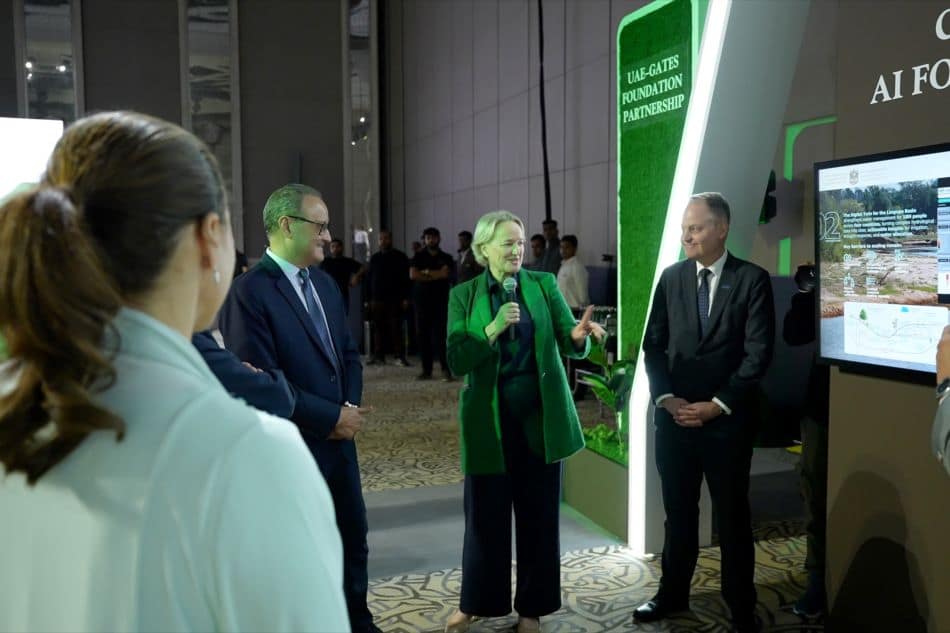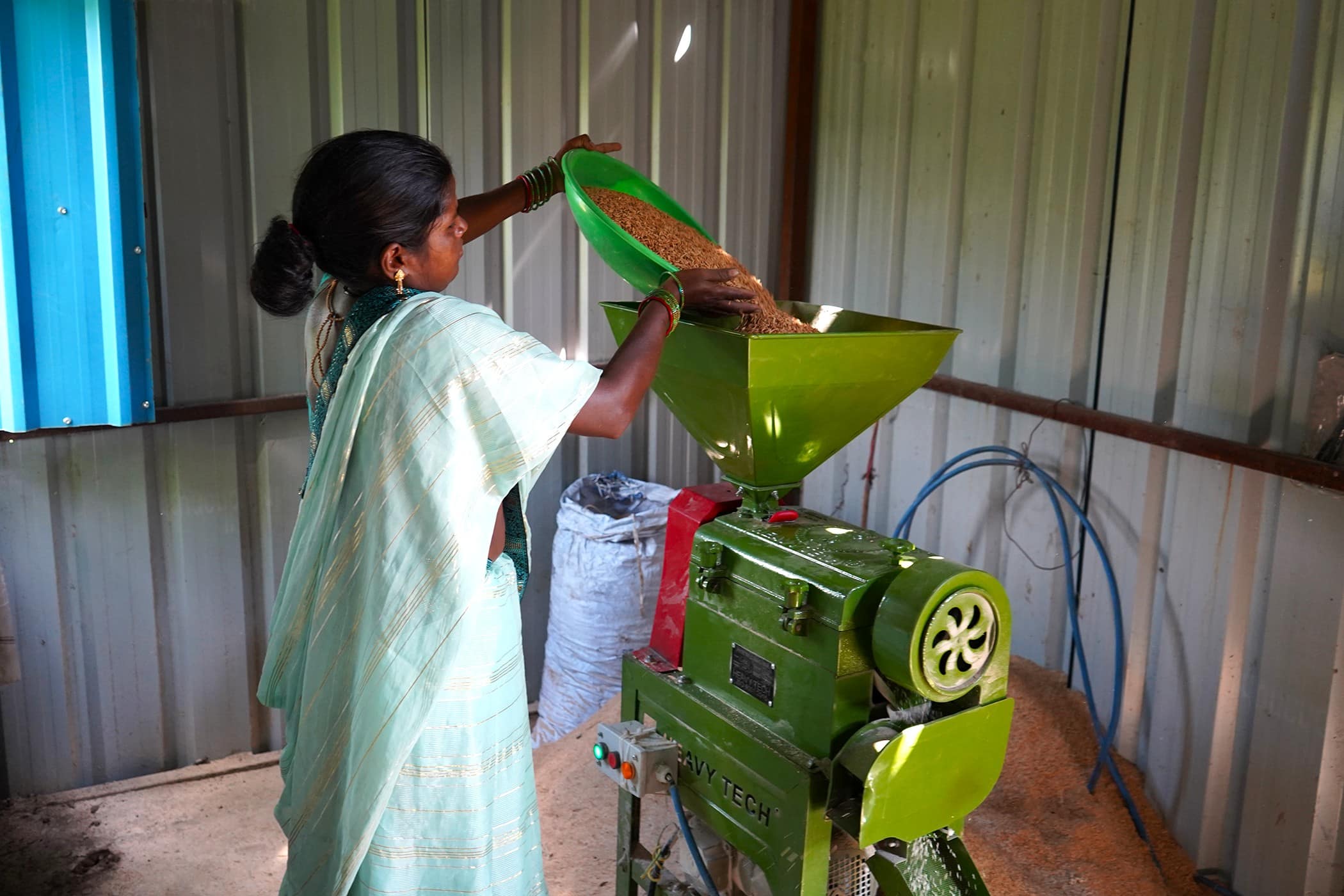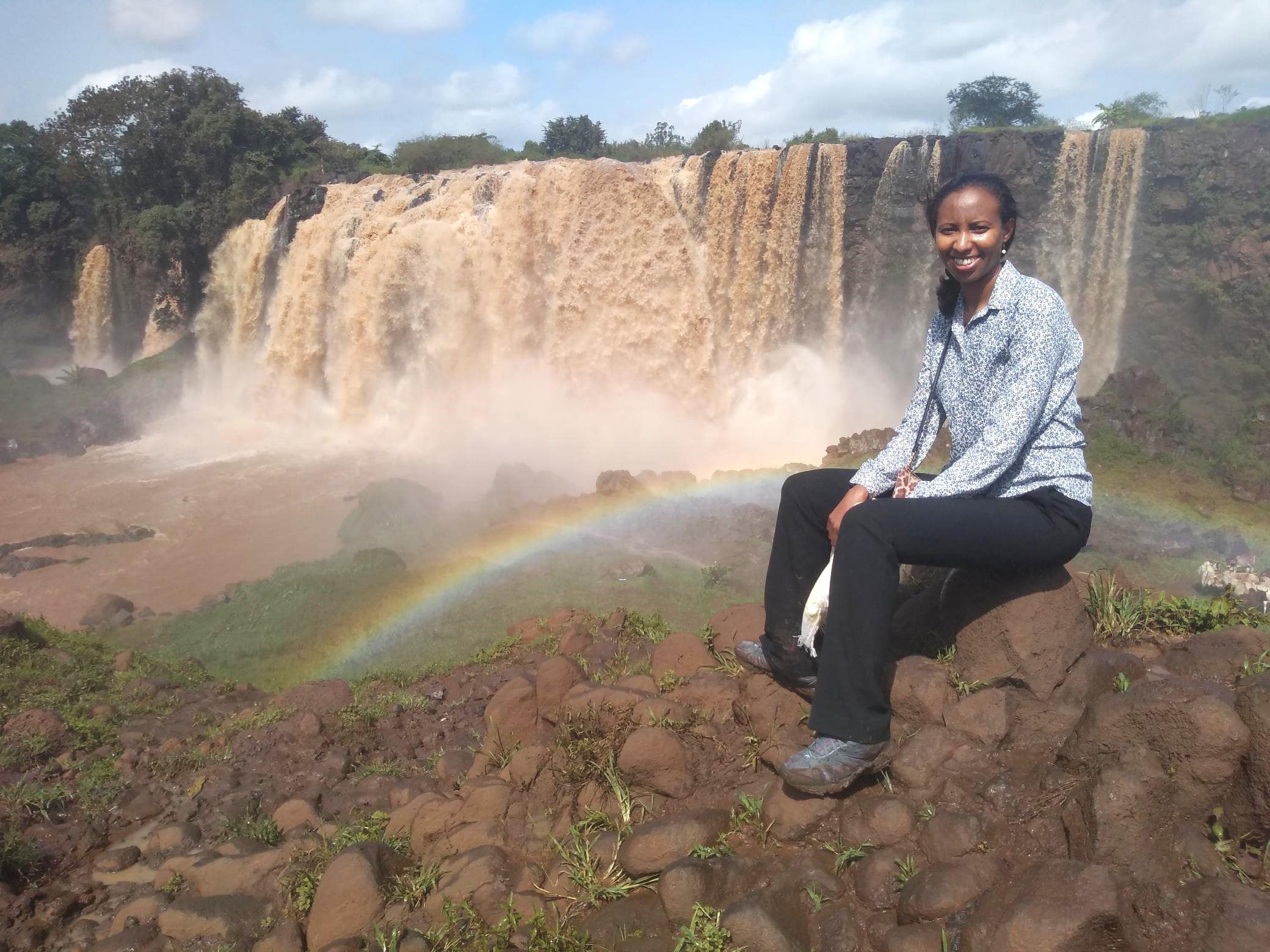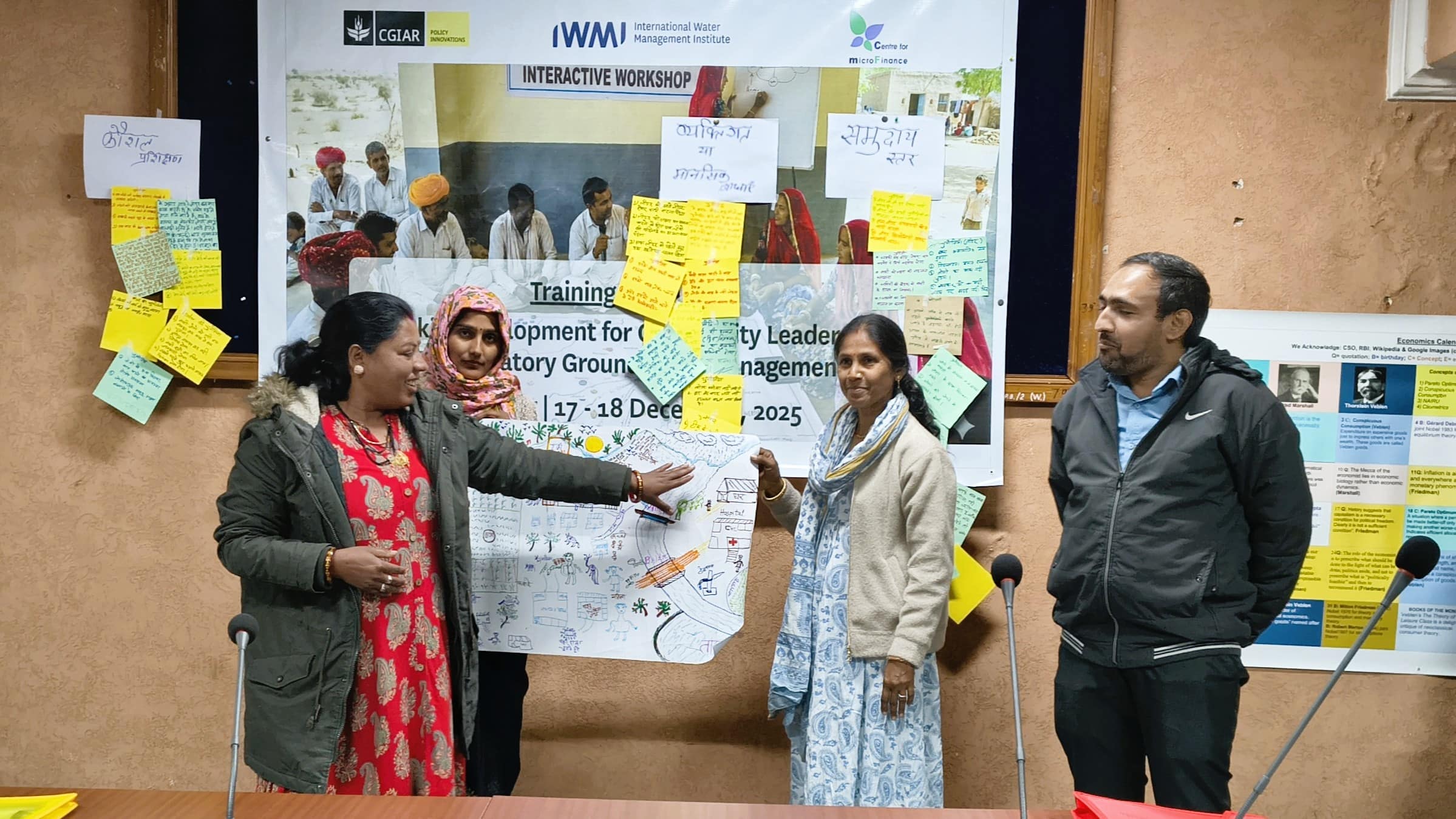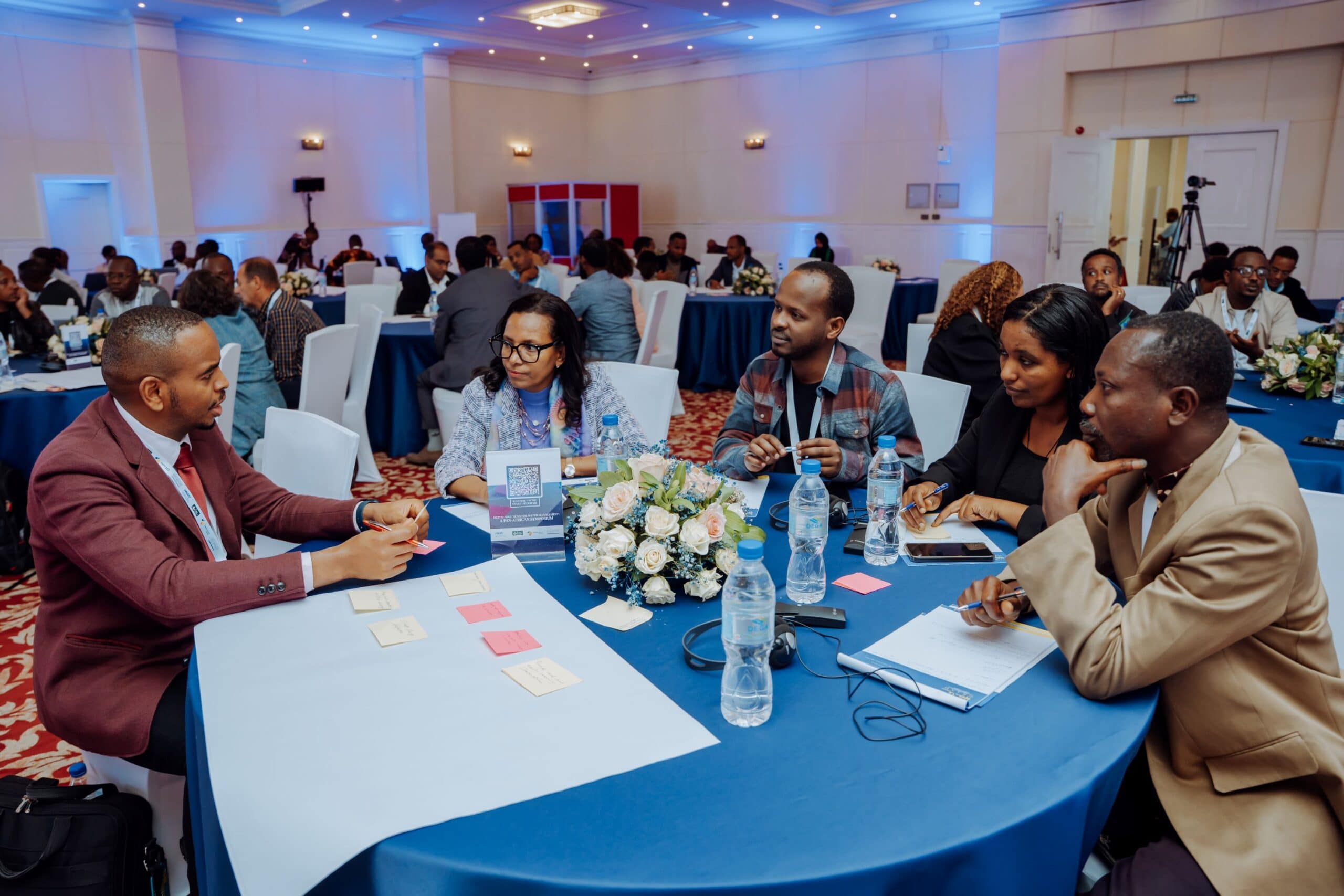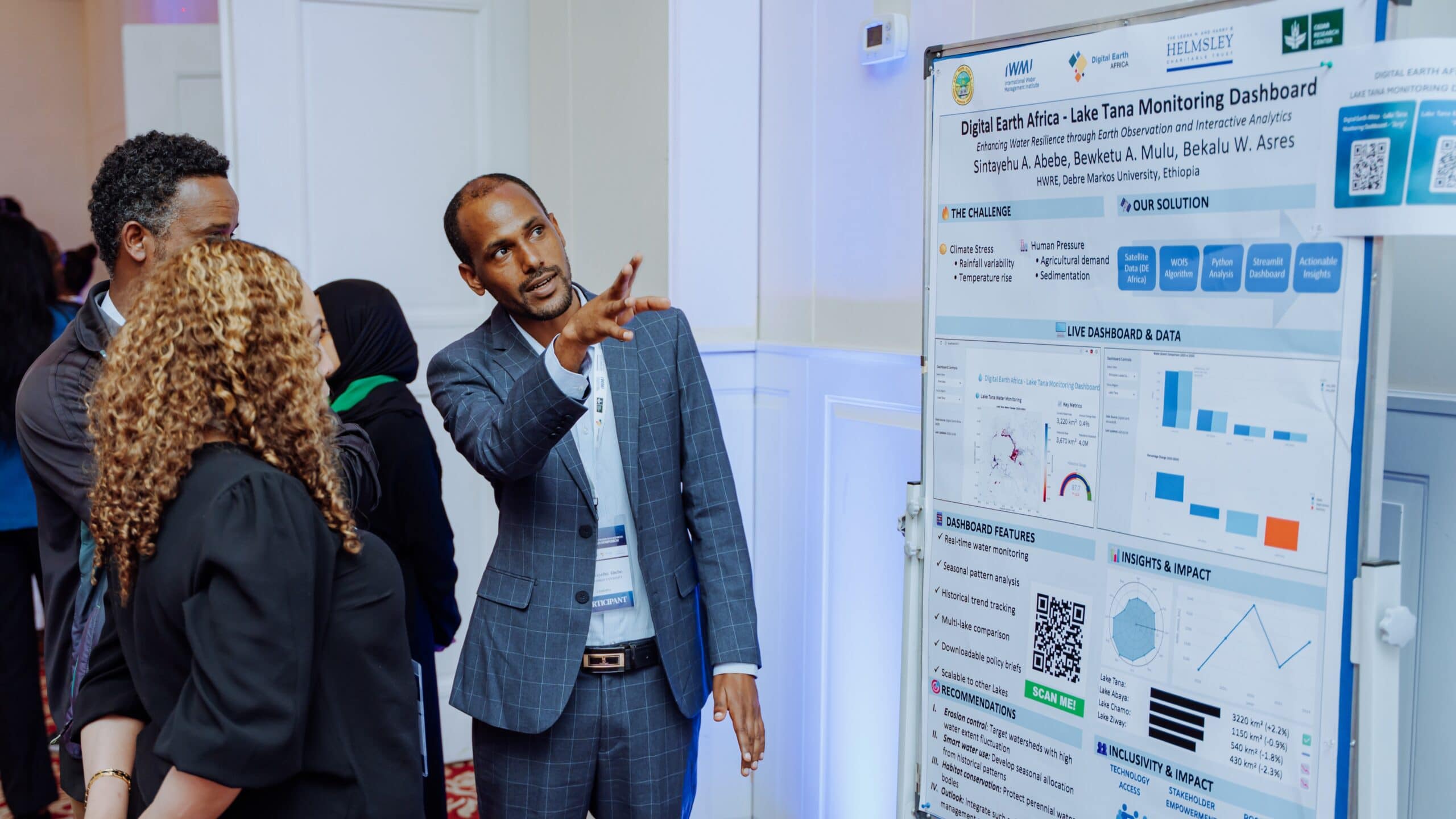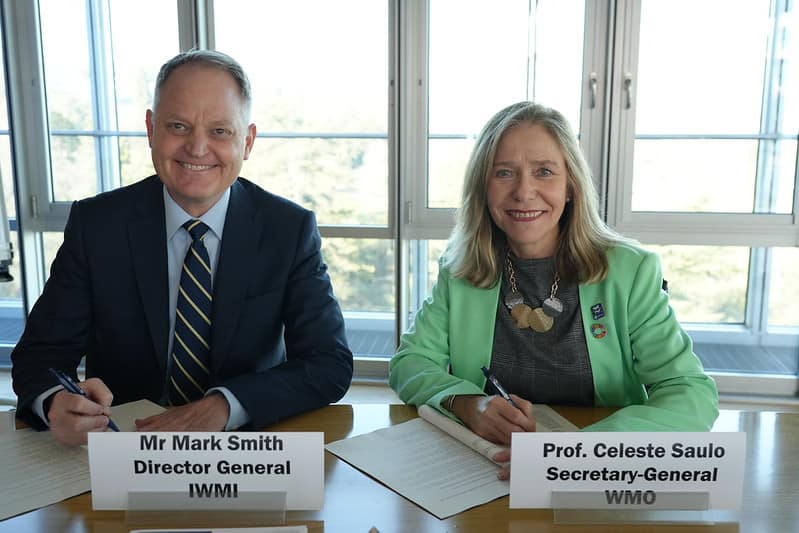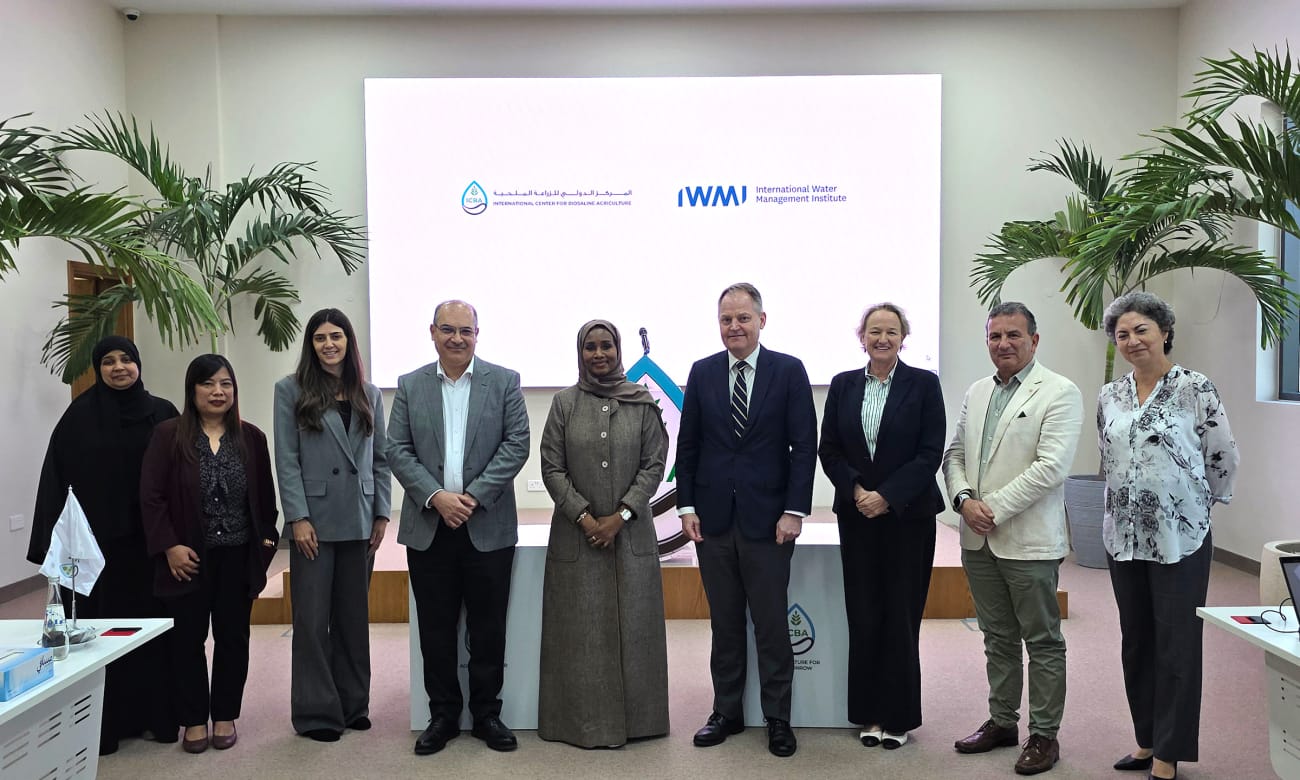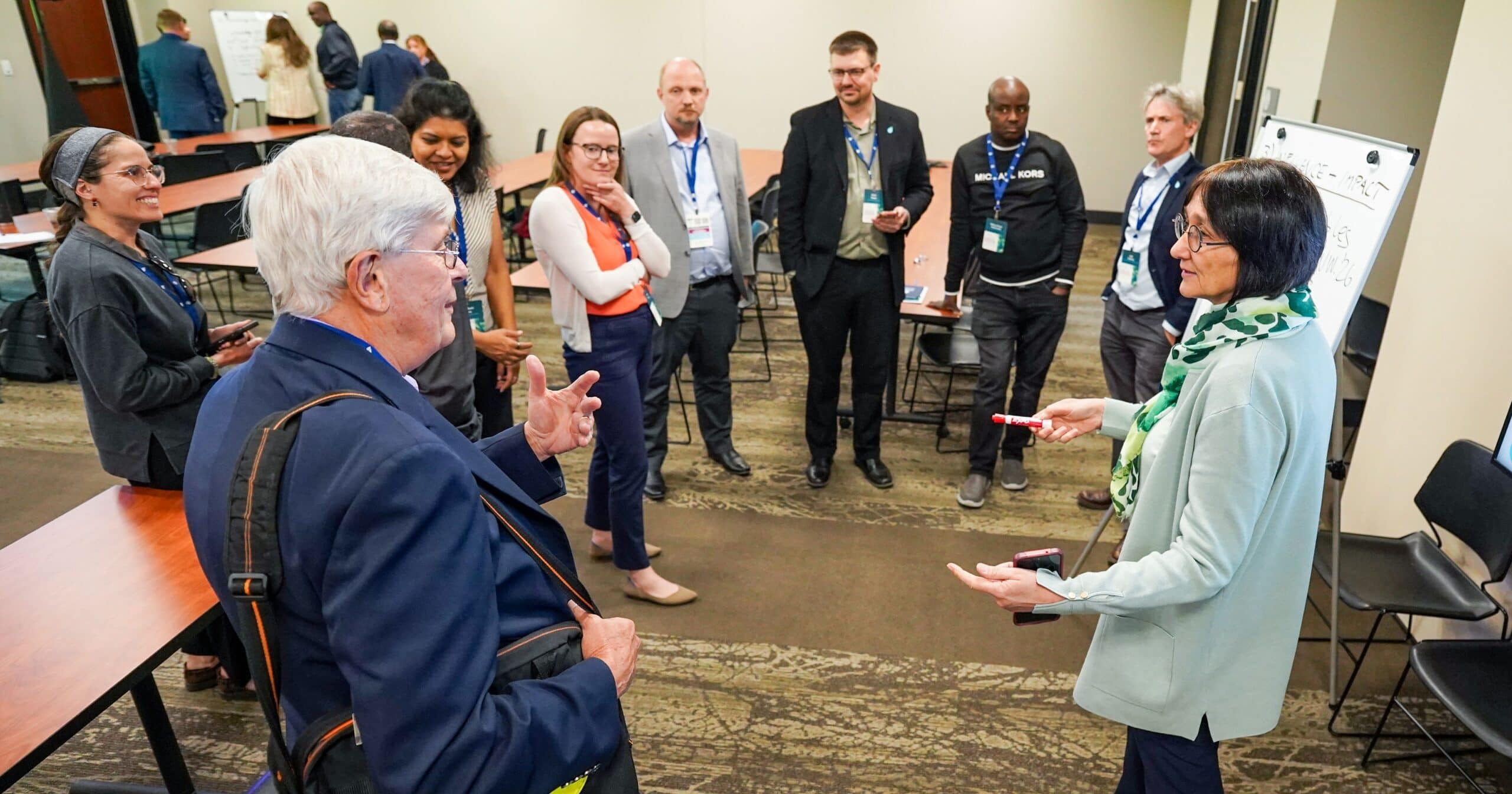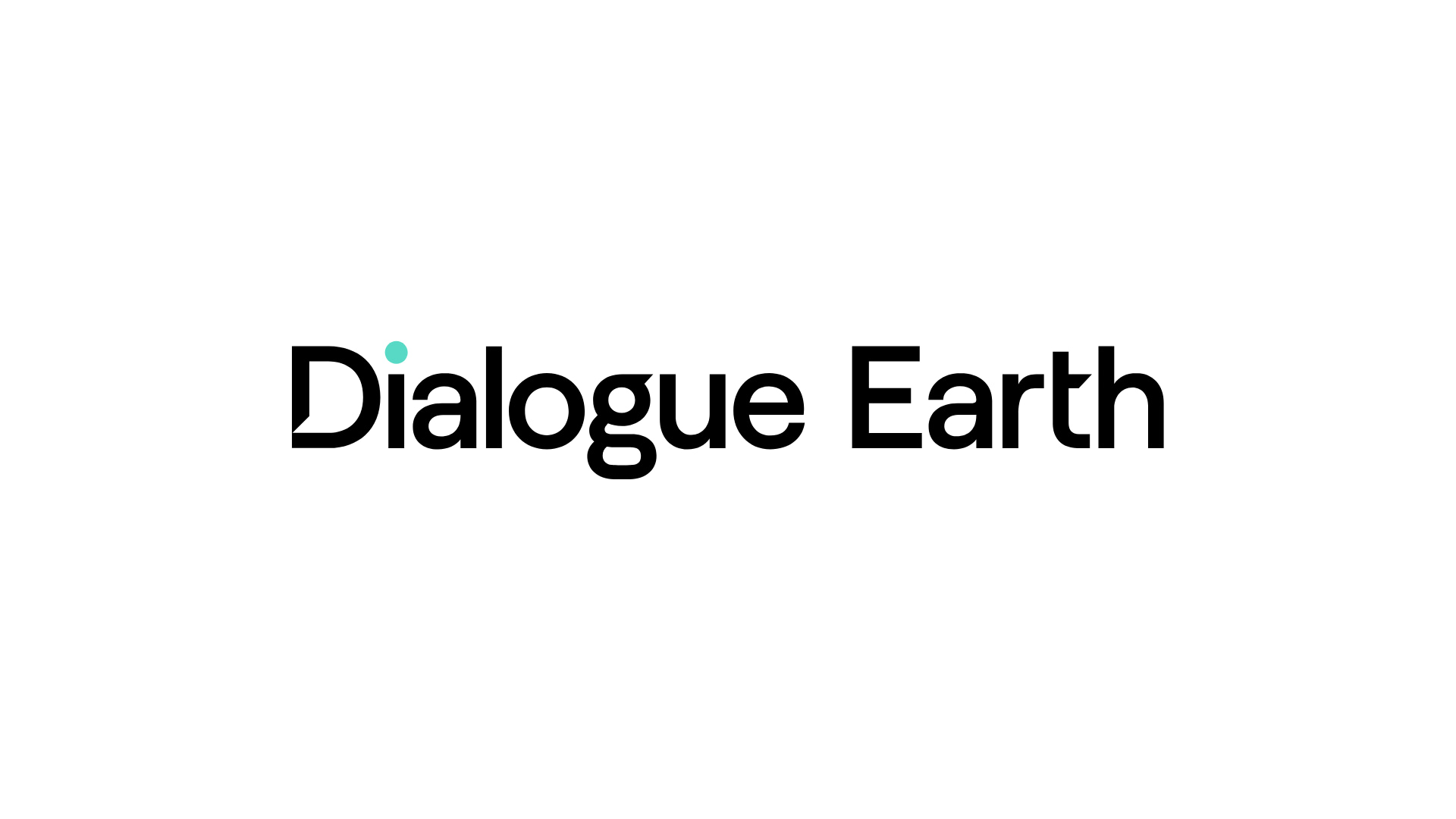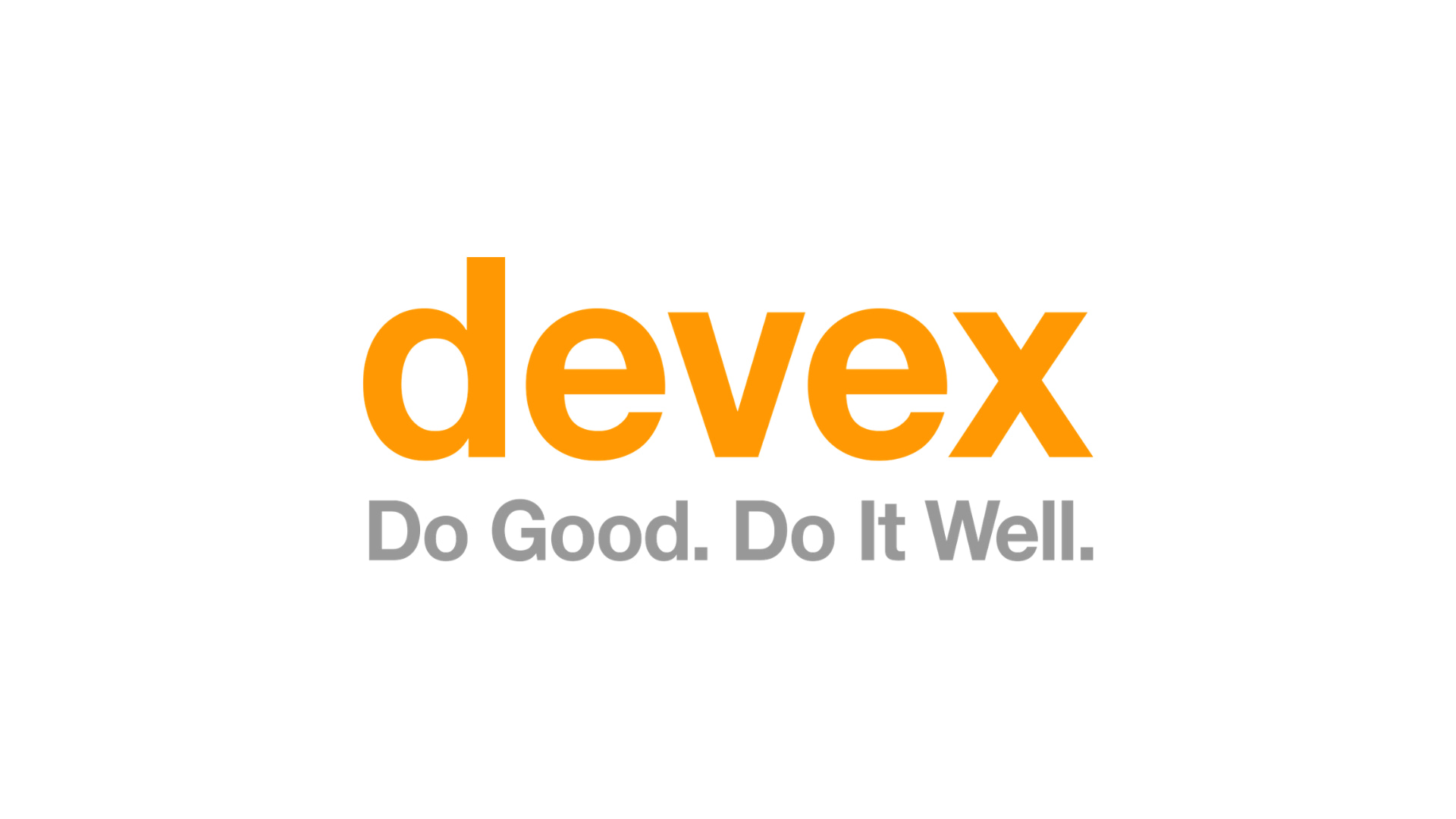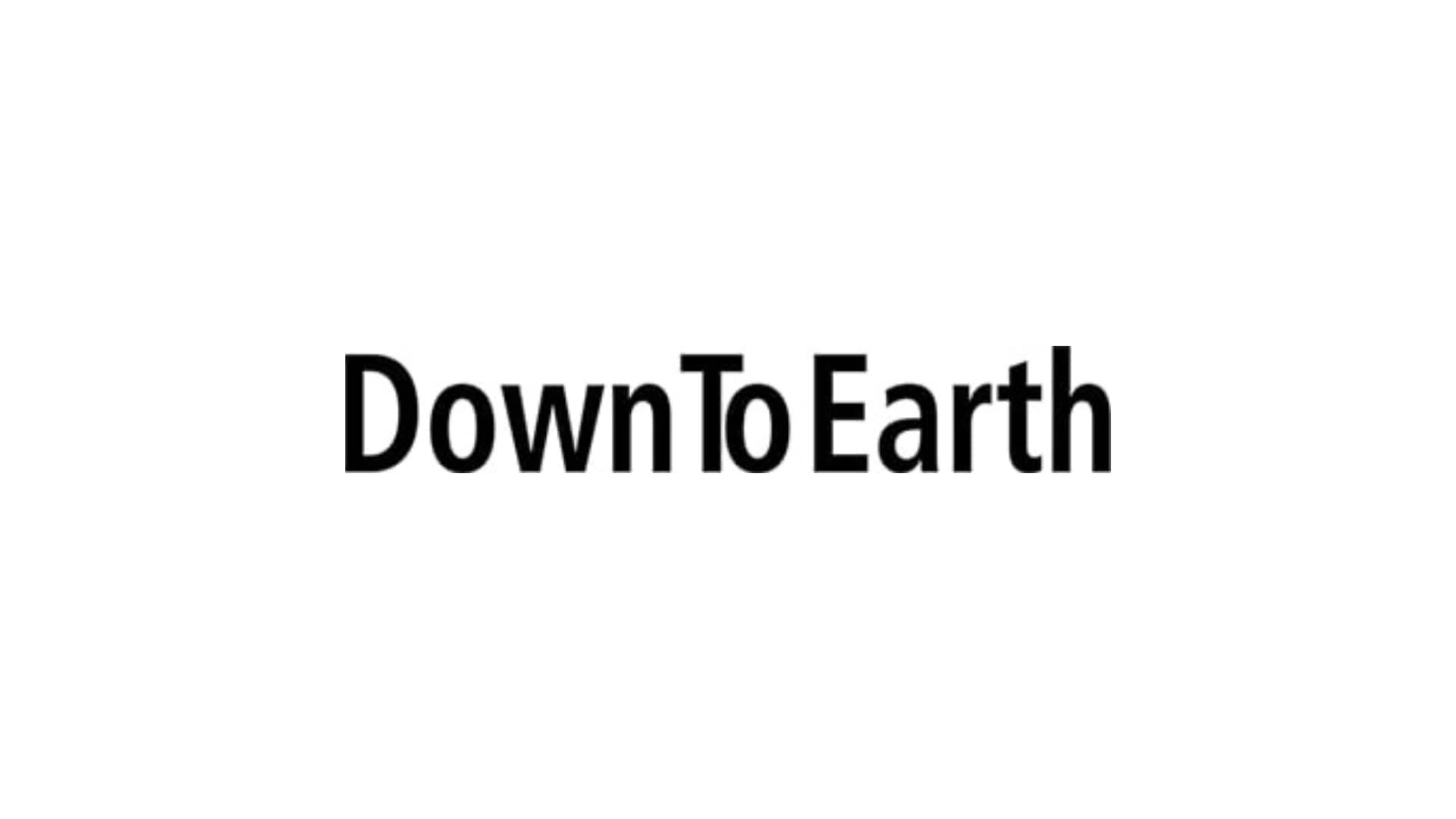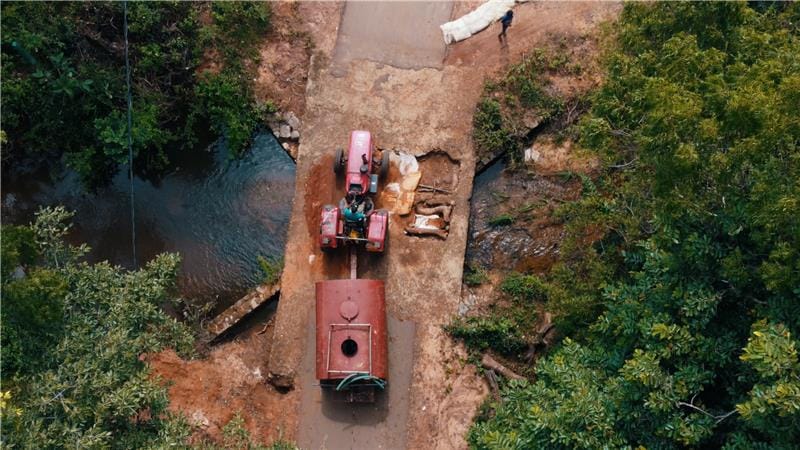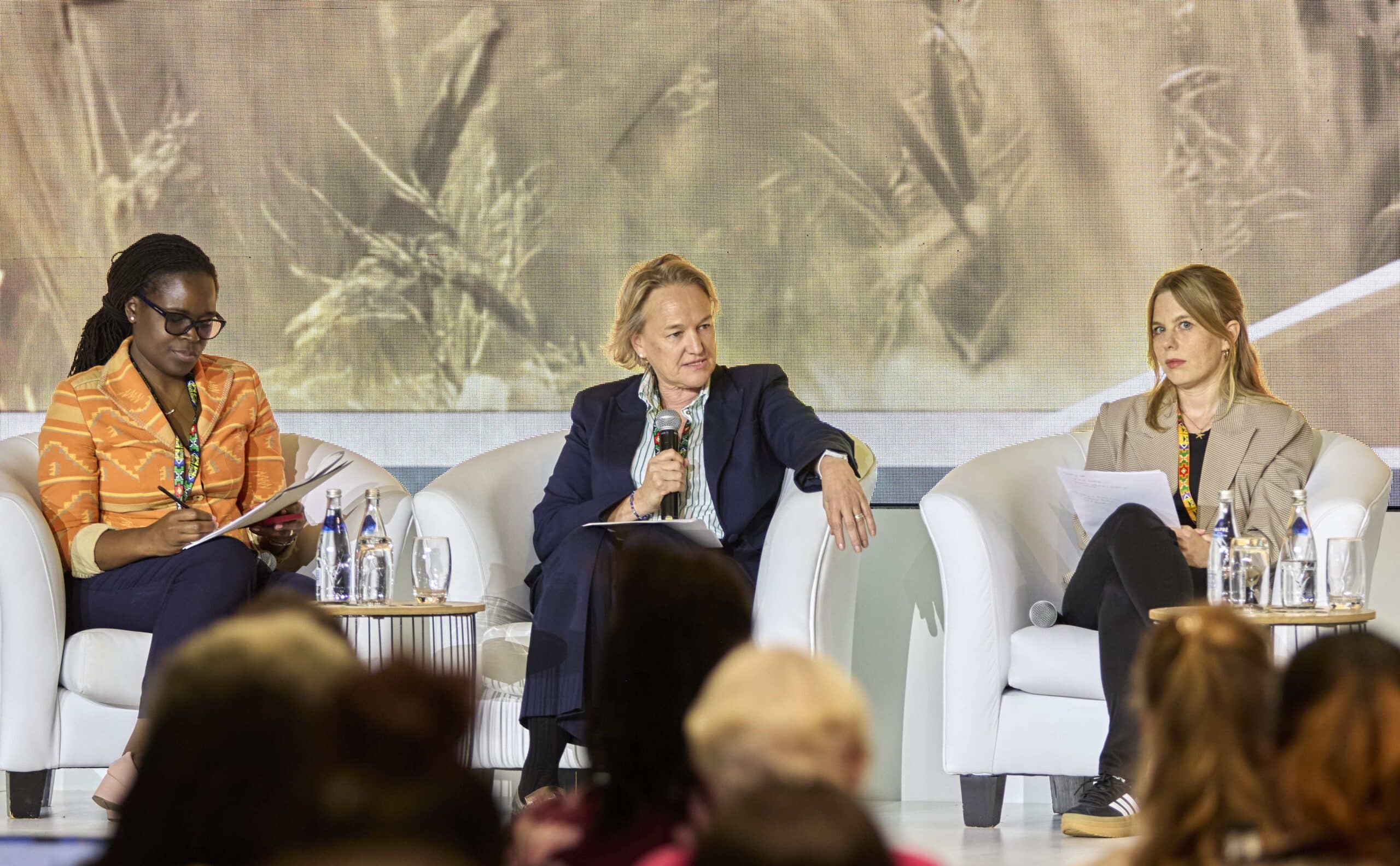Home > News
News
Latest news
IWMI contributes water solutions to UAE AI Ecosystem for Global Agricultural Development
Through CGIAR’s AI Hub, IWMI researchers lend expertise to a global push to apply AI in agriculture and water resilience.
Innovative solar irrigation models inspire South–South learning
Community-managed solar irrigation in India offers scalable lessons for the Global South.
Women, science and the future of water and climate action
On this International Day for Women and Girls in Science, bridging the gender gap in STEM can lead to more effective water solutions, explains IWMI researcher Meron Teferi Taye.
Blogs
Can we build groundwater stewardship through participatory games?
India’s groundwater crisis cannot be solved through technical fixes alone. Collective community leadership fostered through participatory exercises can offer a way forward.
Insights from pan-African symposium on innovative water management
IWMI, Digital Earth Africa and partners are building and scaling digital tools to support better water decisions across the continent.
Digital innovations for community impact across Africa
IWMI is helping African researchers transform satellite data into actionable water intelligence, through DIWASA, strengthening local capacity and supporting smarter water decisions.
Media releases
IWMI and World Meteorological Organization partner to strengthen climate resilience through data, innovation and early action
The partnership will integrate climate data with water management solutions to help vulnerable communities in Africa and Asia anticipate and respond to extreme weather events.
ICBA and IWMI to strengthen global collaboration on water security and climate-resilient agriculture
Strategic agreement establishes joint framework for scientific exchange, digital water innovation and climate resilience programs in vulnerable regions.
IWMI and DWFI partner on Cambridge Sustainability Commission on Water for Food Futures
The new partnership aims to advance innovative approaches and policies to ensure a more secure future for global water and food systems.
In the media
Homestead farming is empowering Indigenous women in central India
Women in Mandla, Madhya Pradesh are becoming leaders of their homestead farms.
Water security failures risk hunger for billions. Countries must prepare
Mark Smith, IWMI’s director general shares insights on how governments can plan and implement policies to manage future water risks in food systems.
How Bharat-VISTAAR turns digital infrastructure into real-world decisions for Indian agriculture
Alok Sikka and Giriraj Amarnath reflect on how, through partnerships with institutions like IWMI, Bharat-VISTAAR can evolve from a data platform into a decision-ready public good.
Videos
Act before the drought, not after
In Sri Lanka’s dry zone, scientists and communities rehearsed drought response through a simulation — preparing for water scarcity before crisis strikes.
Inclusive Scaling for Gender Equality in Land, Food & Water Systems: CGIAR GENDER 2025 Conference
IWMI researchers argue that water innovations need built-in protections to avoid harming the most vulnerable.
Mark Smith message for World Wetlands Day 2026
On World Wetlands Day 2026, IWMI Director General Mark Smith reflects on the role of wetlands as living landscapes deeply woven into our well-being and cultures.


